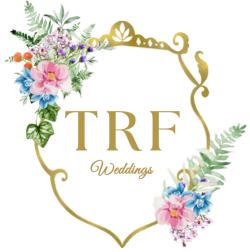[vc_row][vc_column][vc_zigzag css=”.vc_custom_1626814963514{margin-bottom: 0px !important;padding-bottom: 0px !important;}”][vc_column_text css=”.vc_custom_1626878669706{margin-top: 0px !important;margin-bottom: 0px !important;padding-top: 0px !important;padding-bottom: 0px !important;}”]Barry Fagan nails the value proposition associated with collaboration in this week’s installment. We have a unique opportunity to exploit the power of this process to grow stronger, better, faster – together. But like most things, we can only get as good as we give. Everyone, meet Barry…[/vc_column_text][vc_zigzag css=”.vc_custom_1626815046739{margin-top: 0px !important;margin-bottom: 50px !important;padding-top: 0px !important;}”][vc_column_text] Barry Fagan on LinkedIn
Barry Fagan on LinkedIn
I was recently asked to outline the collaboration process using my experience as a basis. I have done and lived a fairly rewarding collaborative career. I have toured the country teaching collaboration with my friend Jesse. And I’ve shared my collaborative experiences with most of Alabama. I honestly thought I had already documented my work. I see now that maybe I haven’t, at least in a succinct and usable sort of form. Anyway, now is a good time to remind myself of the many benefits of collaboration and reflect on just how simple the process can be (simple doesn’t mean without hard work, risk, and commitment). Hopefully this will nudge you to at least consider choosing to explore solutions together.
COLLABORATION
WHY: because collaboration just might work.
- Working with others reduces risk and increases effectiveness and opportunities for success.
- Effective environmental protection and enhancement requires multi-disciplined teams with skills that we may not possess on our own.
- Our employers and clients expect us to utilize best practices available in order to serve them effectively and efficiently. Choosing to ignore the potential benefits of collaboration could appear to be foolish.
WHAT: choosing to explore solutions together.
- Collaboration is a voluntary commitment (not required, a choice).
- It is an adventure with no certain outcome (it may not work).
- There are no rules, but it is based in reality, truth, and developing relationships.
HOW to get started: find a partner; find some focus; find some energy.
- Find a potential partner you would like to influence or that would further your interests (while being fully open to the idea of being influenced yourself).
- Be honest about your goals and what you are willing and able to contribute, while listening intently to identify the needs of your partner.
- Identify and make a plan for taking action that would benefit one thing you have in common (a common goal of improving a community’s quality of life requires both economic competitiveness and ecological sustainability, for example). Learn together and apply that learning together.
HOW to maintain: engage and endure.
- Be on constant look-out for opportunities to do more good together (find one more common interest, and go after it).
- Be committed to staying in touch and talking through the hard parts (even our closest relationships need maintenance).
- Collaboration is risky – protect each other. “That’s not my experience with them…” works well to fend off naysayers and those who seek to reorder things in honor of the good ole’ days.
HOW to optimize/maximize/capitalize: develop a collaborative mindset.
- Collaborators are like entrepreneurs – their eyes and ears are always picking up signals of opportunity where new, renewed, or ramped-up collaboration makes sense.
- Make collaboration your brand – collaborative relationships breed collaborative relationships.
- Share your collaborative successes with everyone that will listen. This not only inspires others to give collaboration a chance, it will also give you the energy required to push your relationships one step further toward another successful case study.
Our job is to influence. Effective leadership is about influence, environmental protection is about influence, effective regulation and compliance are about influence, sales, consulting, service, permission, negotiation, awareness, acceptance… career, family, life are all about influence…
…we cannot expect to influence those we are unwilling to hang out with.[/vc_column_text][/vc_column][/vc_row]
